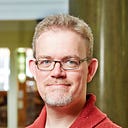Ebrahimsa Mohamed (1937–2017) and Malcolm X’s British tour in 1964
It is sad to hear that Ebrahimsa Mohamed (1937–2017), may God have mercy on him, passed away on 31 December at the age of eighty. He was a pioneering Muslim activist who helped to establish or run many post-war Muslim institutions in Britain such as the Federation of Student Islamic Societies, the Islamic Council of Europe and Muslim Aid. I will add any links here to obituaries that come to light later on.
The scholar and community activist Abdul Wahid Hamid in an interview some time ago with Sound Vision laid out how Ebrahimsa Mohamed influenced him personally:
Another person who has had a great impact on me was a fellow student, Ebrahimsa Mohammed. He is a quiet, unassuming person and one of the most well-informed and practical persons around. He came to London from Penang in Malaysia to study law, His law studies fell by the wayside as he took it upon himself to look after the needs of students who started coming to the UK in substantial numbers from the early sixties onwards. He made it his business to get to know Muslim students in all parts of the country, put them in touch with one another and where they needed help, financial or otherwise, he would arrange something. He was one of the founders and early presidents of FOSIS — The Federation of the Students Islamic Societies in the UK & Eire. I had the privilege of being its General Secretary under his presidency. I can honestly say that I learnt more from being in this milieu than from the academic courses at university. Brother Ebrahimsa not only knew students but scholars and activists at all sorts of levels in Britain, from the big names in the Muslim world — Muhammad Natsir, Mawdudi, Said Ramadan, philantropists like Ebrahim Bawany, Malcolm X and many others including even more notorious guys like Michael X. He is extremely widely read and maintains an abiding and passionate interest in making the best use of resources and in helping the poor and downtrodden. One of my recent meetings with him was at a gardening centre in north London shovelling horse manure — he is very much into organic foods and healthy eating. [1]
And the historian Jamil Sherif provides an excellent tribute to the life and times of Mohamed Ebrahimsa here. [2]
Among his many achievements, I would like to draw attention to Ebrahimsa Mohamed’s key role in facilitating an extension to Malcolm X’s historic tour around England in December 1964 after he had accepted an invite to address the Oxford Union. Mohamed, then General-Secretary and later President of FOSIS, helped — with others such as Abdul Wahid Hamid, Hoossain Rajah (d.2017) and Ghayasuddin Siddiqui — to arrange talks in Manchester, Sheffield and London. Here is a reminiscence Ebrahimsa Mohamed wrote of Malcolm’s 1964 tour that was published in Impact International (24 Sept. 1971), 8–9:
Said Ramadan (1926–1995), whom Malcolm had met several months earlier in Geneva[3], agreed to sponsor his British tour. (Malcolm’s final visit to Britain in February 1965 also allowed him to connect again with Muslim students in London and also Birmingham.) For details of the tour, see the works of Graeme Abernethy, Saladin Amber, Marika Sherwood, Joe Street and Stephen Tuck, although, with the partial exception of Sherwood, they do not focus much on Malcolm’s commitment to developing links with Muslim student activists in Britain, who were part of an emerging international network that was important to the global Islamic revival of the late twentieth century.[4]
Below are some rare photographs from the December 1964 and February 1965 tours. If anyone has any further memories, photos, posters, archives or documents they wish to share about Malcolm’s interactions with Muslims during his two tours in Britain in December 1964 or February 1965, please contact me at prjjb AT leeds DOT ac DOT uk:
Notes
[1] ‘An Interview with Abdul Wahid Hamid’, Sound Vision, [n.d.], https://www.soundvision.com/article/an-interview-with-abdul-wahid-hamid, accessed 3rd January 2018.
[2] J. Sherif, ‘Ebrahimsa Mohamed: A Tribute to a Community Giant’, Muslim Council of Britain, 2 January 2018, http://www.mcb.org.uk/ebrahimsa-mohamed-a-tribute-to-a-community-giant/, accessed 3 January 2018.
[3] Malcolm met Ramadan in Geneva on 16 November 1964, see H. Boyd and I. Al-Shabazz (eds) The Diary of Malcolm X (El-Hajj Malik El-Shabazz), 1964 (Chicago: Third World Press, 2013), 173–4. For an analysis of their debate on Islam and race politics see E. E. Curtis IV, ‘“My Heart Is in Cairo”: Malcolm X, the Arab Cold War, and the Making of Islamic Liberation Ethics’, The Journal of American History, Dec. 2015, 775–798; Malcolm’s answers but not Ramadan’s questions but a new sympathetic commentary were published in the FOSIS magazine, The Muslim (London), in February 1969, but the full text was originally published in Ramadan’s magazine, Al-Muslimoon, in May-June 1965 in Arabic and then in English in September of that year. The full original text is reproduced in S. Clark (ed.) Malcolm X: February 1965: The Final Speeches (New York: Pathfinder, 1992), 247–255.
[4] G. Abernethy, ‘“Not Just an American Problem”: Malcolm X in
Britain’, Atlantic Studies: Global Currents, 7:3, 2010, 285–307; Saladin Amber, Malcolm X at Oxford Union: Racial Politics in a Global Era (Oxford: University Press, 2014) and his, ‘The Din of Malcolm: Projections of Islam in France and the United Kingdom, 1964–1965’, Journal of Africana Religions, 3:1, 2015, 18–30; Marika Sherwood, Malcolm X: Visits Abroad (Hollywood, Ca.: Tsehai, 2011), Chapters 9 and 11; J. Street, ‘Malcolm X, Smethwick, and the Influence of the African American Freedom Struggle on British Race Relations in the 1960s’, Journal of Black Studies, 38:6 (Jul., 2008), 932–950; S. Tuck, The Night Malcolm X Spoke at the Oxford Union: A Transatalantic Story of Antiracist Protest (Oakland: University of California Press, 2014).
